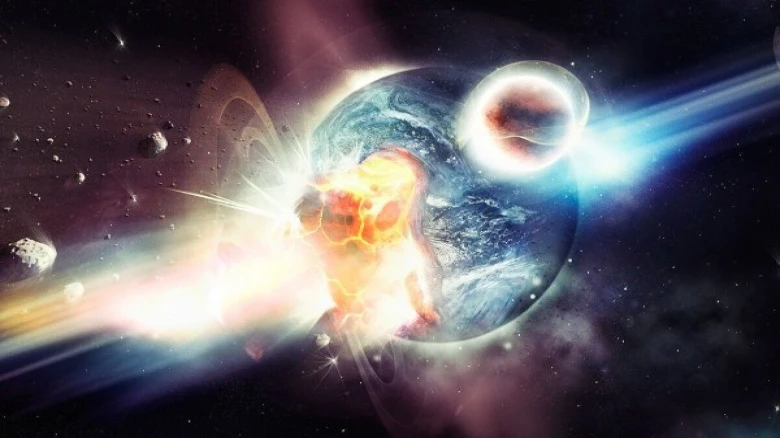Regional

For centuries, scientists have been enthralled by the origins and end of the universe, which remain two of physics' most pressing questions.
Digital Desk: Scientists in the United States have published a new research paper outlining the possibility that the universe will begin to shrink shortly, leading to its demise and eventual rebirth.
For centuries, scientists have been enthralled by the origins and end of the universe, which remain two of physics' most pressing questions.
Today's prevailing theory is that the universe began with the Big Bang—a massive expansion of everything from a single point that continued to grow and cool into what the universe is today.
However, there is some disagreement about how the universe will end. Several theories are floating around, including "The Big Rip," which theorises that the universe will continue to expand faster and faster until the distances between even individual particles become infinite; "The Big Freeze," in which the universe continues to expand forever, and all matter cools to absolute zero; and "The Big Crunch" or "Big Bounce," in which the universe stops expanding, begins contracting, and eventually collapses into a single point before exploding.
In this latter scenario, the end of the universe and the beginning of the universe are essentially the same.
According to NASA, current measurements of the universe indicate that we are on the verge of either the Big Rip or the Big Freeze scenario, as the expansion of space appears to be accelerating, driven by the mysterious force known as dark energy, which accounts for 68 per cent of the universe.
However, three scientists from New York and New Jersey believe that dark energy may not last forever. They believe that dark energy is a form of quintessence, which changes over time.
Dark energy will eventually be insufficient to drive the universe's expansion if this is the case. According to the researchers, the gravitational pull of everything in space will cause everything to collapse in on itself.
The prediction that this could happen shockingly soon—the transition from expansion to contraction is less than 100 million years, is perhaps the most striking aspect of their research.
In cosmic terms, this is a mere blink of an eye, given that scientists generally believe the universe has been around for about 13.8 billion years when the Big Bang was thought to have occurred.
Following this transition, the universe could enter a "slow contraction phase" lasting 1 billion years before exploding again.
A physics and astronomy professor at the University of British Columbia who was not involved in the study, Gary Hinshaw, told Live Science that the scientists' theory was not implausible. However, the predictions are currently impossible to test and are only theories.
Hinshaw added, "I think it really just boils down to how compelling do you find this theory to be, and, more importantly, how testable do you find it to be,".
Also Read: 7 life-changing lessons you must learn from Bhagavad Gita
Leave A Comment